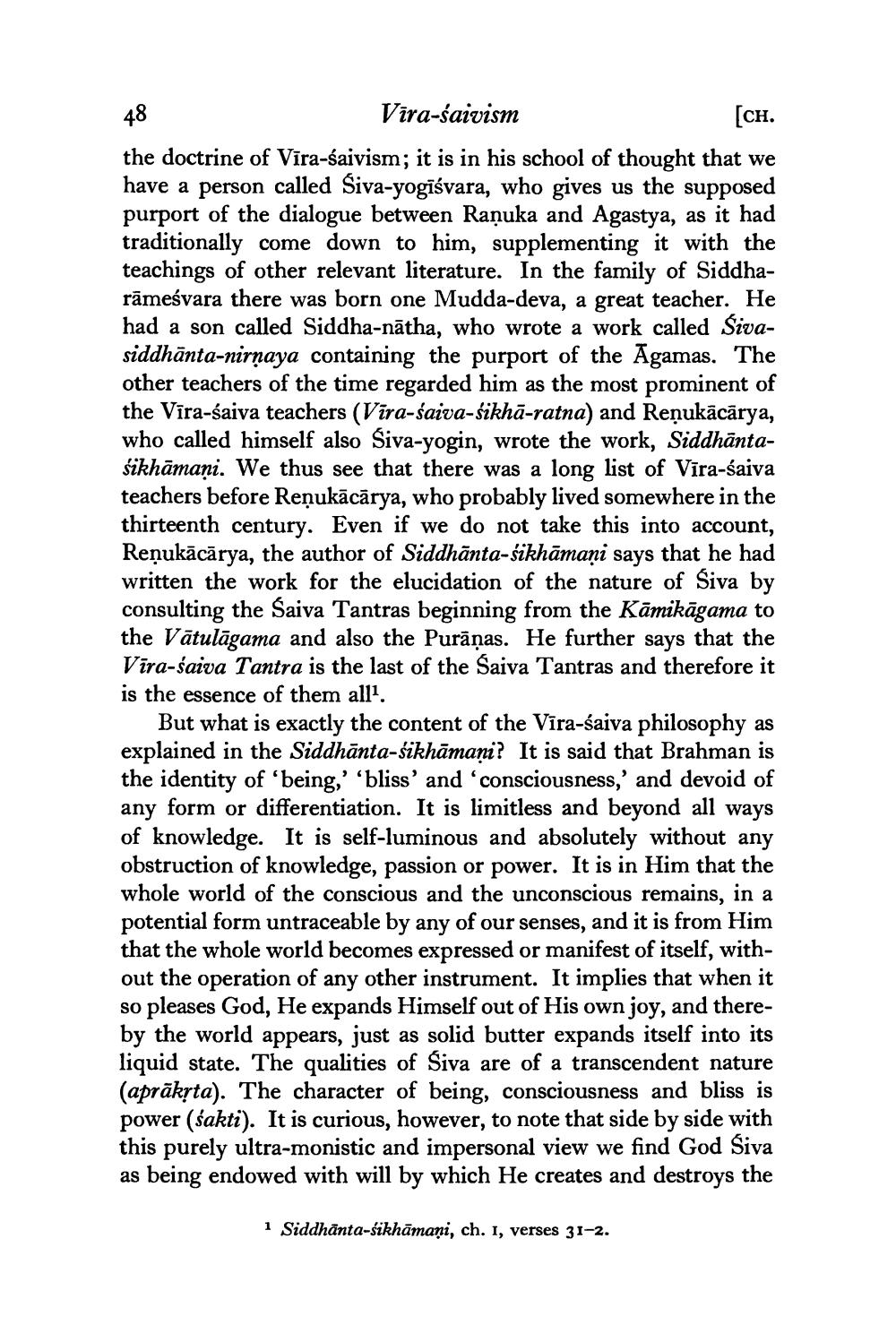________________
48
Vira-saivism
[CH. the doctrine of Vīra-saivism; it is in his school of thought that we have a person called Siva-yogīśvara, who gives us the supposed purport of the dialogue between Raņuka and Agastya, as it had traditionally come down to him, supplementing it with the teachings of other relevant literature. In the family of Siddharāmesvara there was born one Mudda-deva, a great teacher. He had a son called Siddha-nātha, who wrote a work called Sivasiddhānta-nirnaya containing the purport of the Agamas. The other teachers of the time regarded him as the most prominent of the Vīra-saiva teachers (Vira-saiva-śikhā-ratna) and Renukācārya, who called himself also Siva-yogin, wrote the work, Siddhāntaśikhāmaņi. We thus see that there was a long list of Vīra-saiva teachers before Reņukācārya, who probably lived somewhere in the thirteenth century. Even if we do not take this into account, Reņukācārya, the author of Siddhānta-sikhāmaņi says that he had written the work for the elucidation of the nature of Siva by consulting the Saiva Tantras beginning from the Kāmikāgama to the Vātulāgama and also the Purāņas. He further says that the Vīra-saiva Tantra is the last of the Saiva Tantras and therefore it is the essence of them all.
But what is exactly the content of the Vīra-saiva philosophy as explained in the Siddhānta-śikhāmani? It is said that Brahman is the identity of being,' 'bliss' and 'consciousness,' and devoid of any form or differentiation. It is limitless and beyond all ways of knowledge. It is self-luminous and absolutely without any obstruction of knowledge, passion or power. It is in Him that the whole world of the conscious and the unconscious remains, in a potential form untraceable by any of our senses, and it is from Him that the whole world becomes expressed or manifest of itself, without the operation of any other instrument. It implies that when it so pleases God, He expands Himself out of His own joy, and thereby the world appears, just as solid butter expands itself into its liquid state. The qualities of Siva are of a transcendent nature (aprāksta). The character of being, consciousness and bliss is power (sakti). It is curious, however, to note that side by side with this purely ultra-monistic and impersonal view we find God Siva as being endowed with will by which He creates and destroys the
1 Siddhānta-śikhāmaņi, ch. 1, verses 31-2.




